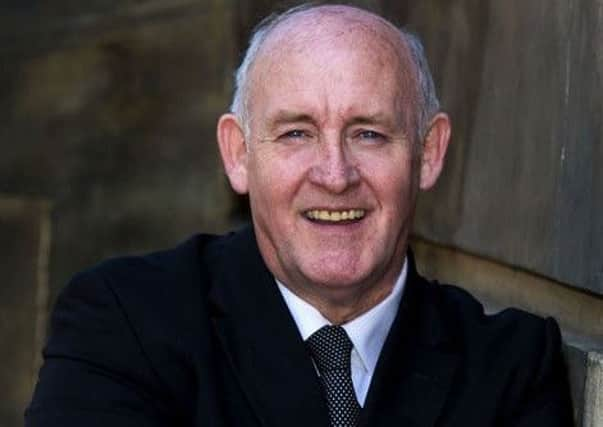Prof Ian Welsh OBE: Social care is a matter of human rights '“ so let's pay those who do it properly


Austerity has been felt in many aspects of the lives of disabled people, people living with long term conditions and unpaid carers.
But it could be argued that cuts to social care support have remained among those which are most hidden from the general public. In Scotland, the flatlining of local government finance has led to decisions which affect the human rights of people who use support and services, as well as their paid and unpaid carers.
Advertisement
Hide AdAdvertisement
Hide AdAt Carers Scotland’s recent Carers Parliament, we heard unpaid carers expressing concern about how social care was either not available at the level it once was or that the available options were not properly presented to people who need support.
Provided by a mixed economy of councils, third sector organisations and independent care providers, the range of services classified as “social care” is vast – from care homes or meals on wheels to 24-hour support in people’s homes.
It has been the subject of rapid change in recent years. Greater levels of personalisation of approach, based on outcomes identified and directed by people who use support, has coincided with the introduction of integrated health and social care partnerships across Scotland, which aim to ensure that the NHS and social care work more closely in alignment.
Meanwhile the stretched public budget has led to controversial decisions being made by statutory bodies about the level of investment they make in ensuring people across Scotland get the support they need.
It is our view that social care itself needs to be recognised as a direct contribution to the human rights of older people, disabled people and others.
The system in Scotland should be founded upon the rights-based PANEL principles (participation, accountability, non-discrimination and equality, empowerment, and legality). These offer a way to put human rights into practice, including in the design, delivery, and assessment of care and support.
Vital to the sustainability of social care is the recruitment, retention and development of a highly skilled and motivated social care workforce. What we pay our social care staff is critical to how the profession is regarded and valued across Scottish society.
Its economic contribution remains undervalued – despite contributing £46.2 billion to the UK economy and representing 6 per cent of total employment, the average wage of a social care employee remains well below the UK average and a disproportionate number of social care roles are performed by women – contributing to the gender pay gap.
Advertisement
Hide AdAdvertisement
Hide AdIn 2016, the First Minister announced that social care staff in Scotland would receive the Scottish living wage (then £8.25) for all daytime hours worked from 1 October 2016.
In one move, this increased the level of public spending per capita in adult social care in Scotland to above any other area of the UK. This was, however, limited, initially, to daytime hours worked – and didn’t recognise that many social care providers support people overnight, often referred to as “sleepover shifts”.
Announcements later followed from Ministers that health and social care partnerships are to work with care providers to deliver the Living Wage for overnight support during 2018/19. However, no specific date has been set for the introduction of this additional support. To achieve the best social care we have to prioritise paying social care staff better.
The five largest social care providers in Scotland are delivering around 60 per cent of the available sleepover shifts in Scotland – which means that they are also competing with each other to recruit and retain the staff to deliver them. Resources are scarce to cover the costs of the living wage overnight.
But, in our view, ensuring carers receive the Scottish living wage for every hour worked remains the right thing to do.
As providers and commissioners come together to reach a solution, the ALLIANCE calls on policymakers and social care professionals to remain mindful that at the core of these issues are the rights of people who use support and services, as well as the rights of people who provide them. We must not consider a roll back to the institutionalised settings of the past to meet the financial challenges of today.
The people of Scotland deserve social care services that meet their needs, enabling them to live independently and participate equally in society.
Prof Ian Welsh OBE, chief executive, the Health and Social Care Alliance Scotland (the ALLIANCE).